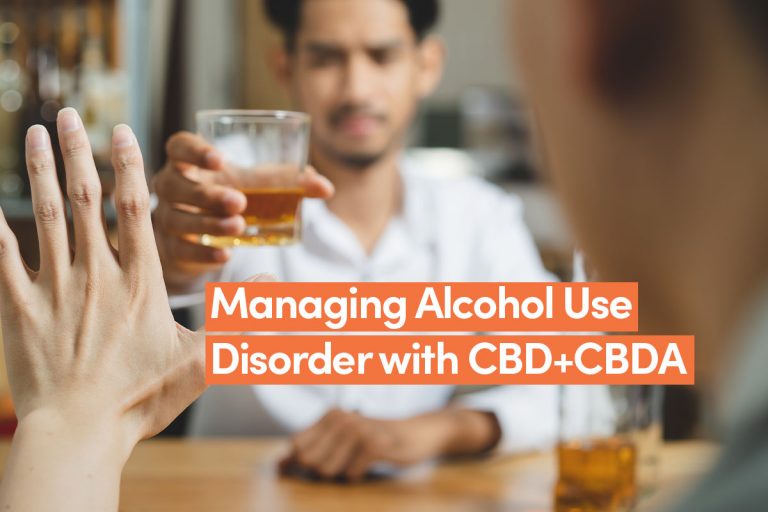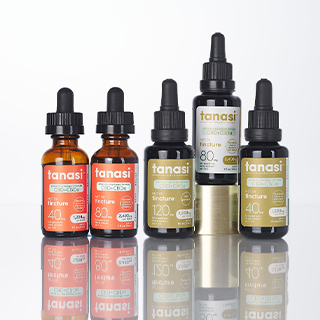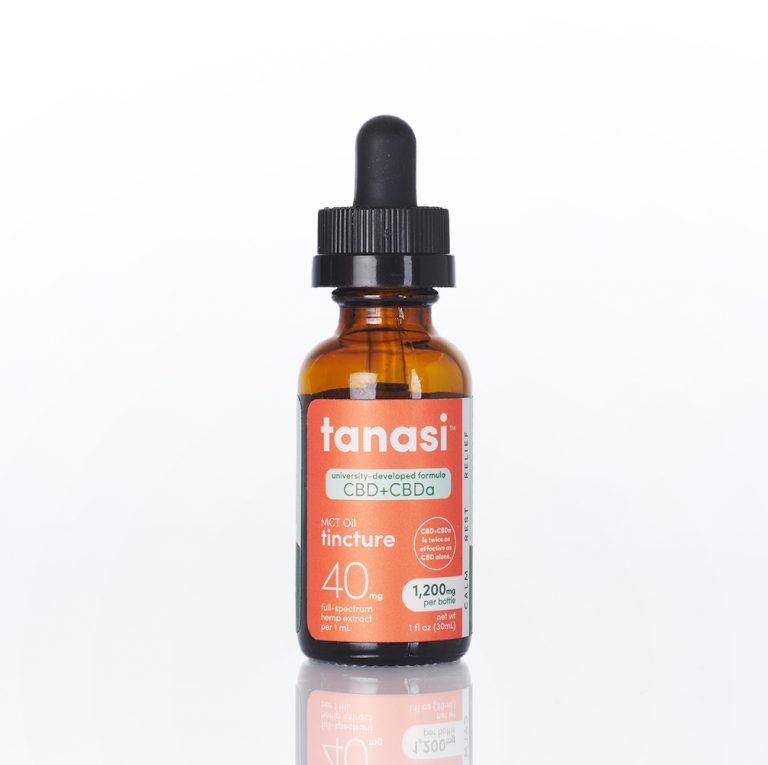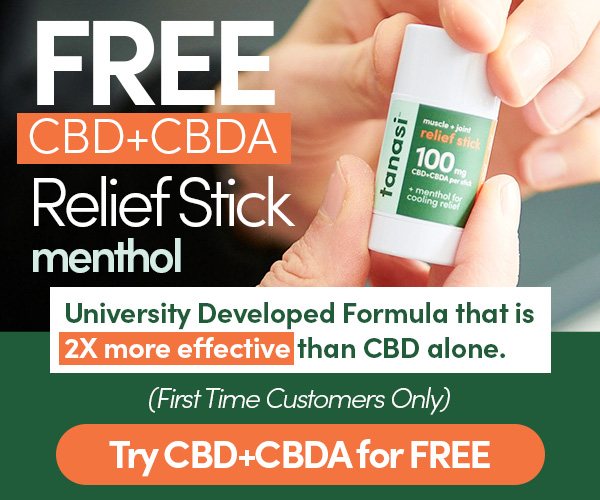Can CBD Get You High?
Posted on October 14th, 2020
Cannabidiol (CBD) is a compound that exists in cannabis plants, and unlike its cannabinoid cousin tetrahydrocannabinol (THC), Cannabidiol (CBD) is regulated differently thanks to the USDA’s passage of the 2018 Farm Bill, since it doesn’t cause intoxicating effects.
Keep in mind that while THC comes from marijuana plants and CBD comes from industrial hemp plants, both botanicals share the same plant species. And that species is the Cannabis Sativa L. plant. So, what’s the real difference between marijuana and hemp? The answer is simple: we breed industrial hemp for its thick and heavy stalks, because, for centuries, we’ve used the stalk fibers to make rope, paper, sails, and clothing. Over the years of breeding, the hemp plant has developed lower THC concentrations, even in the flowering portions of the cannabis plant, which contains most of the cannabinoids.
Basically, through years of selective breeding, marijuana plants gained distinction from hemp plants through this cannabinoid concentration. We label plants with high THC concentration as marijuana, preferred by breeders for their lush and heavy flowers (buds). (Most marijuana plants have a low Cannabidiol concentration because breeders have selected strains with low CBD concentrations since cannabidiol could moderate the THC ‘high’). In contrast, we label plants with low THC concentrations as hemp, preferred by breeders for their high CBD concentration, and for their additional applications.
Now, CBD oil can potentially change the way you feel. You might experience noticeable sensations in your body when you use products that contain CBD. But here’s the crucial difference: while THC products will make you high, you should carefully choose your CBD products to ensure a legal threshold of THC at 0.3% or less. Keep in mind, the key to this difference is carefully choosing your CBD products from verified companies. Be sure to look for the Certificate of Analysis (COA) that is a lab test that outlines the cannabinoid profile or potency.
Why Do People Ask Can CBD Get You High?
As we just reviewed, both CBD and THC naturally occur in Cannabis Sativa L. plants. Typically, you can isolate CBD from THC and cannabis plants. People infuse CBD into edibles, oils, tinctures, and other products, leaving behind that high-inducing THC molecule. The high feeling is typically experienced with THC levels above 1%, and some plant species can contain up to or around 30% THC. You will not find that level of THC in hemp plants.
Still, because both THC and CBD come from cannabis plants, many individuals assume that CBD induces the same effects as marijuana. But, here’s the good news: they’re wrong! On its own, CBD is nonintoxicating and won’t cause you to feel “high.”
Once again, this goes back to where you source your Cannabidiol (CBD) product. Since you can derive it from industrial hemp plants, you don’t have to worry about THC concentrations exceeding the legal threshold. Because as we reviewed, hemp is natural, and can be bred for low THC concentrations, which means that hemp-derived CBD causes NO psychoactive effects. In fact, when we talk about legal CBD products, we’re talking about hemp-derived products. That’s because, by law, these products may not have a THC concentration exceeding 0.3% derived from hemp plants with 0.3% at dry weight biomass. So, when you purchase legal CBD products, you are getting a product without enough THC to induce any psychoactive symptoms.
Will You Get High From Using CBD Oil?
Once we extract, process and formulate our specific cannabinoid profile (Cannabidiolic acid (CBDA) and Cannabidiol (CBD) from hemp plants, we can add our patent-pending formulation of CBD to a wide range of products. These products include lotions, salve, tinctures, capsules, and our Tanasi water-soluble drink concentrate. And it is a very popular form because it’s so versatile: you can add it to drinks (water-soluble preferred), and food, or you can take it sublingually (under your tongue).
You may notice that these products are advertised as natural dietary supplements, but the Food and Drug Administration has not evaluated CBD products. Indeed, research is ongoing and consuming CBD may hold benefits. The people who say they like CBD appreciate not felling the high-inducing effects of marijuana.
You may wish to try CBD products to determine if you like them. CBD products may not do anything for you, and your friends may swear by CBD. If that’s the case, CBD might not be worth taking, and if you’re curious of its effects you should know what you are taking.
The Cannabidiolic-acid (CBDA) that we also include in our Tanasi patent-pending University developed formula is essentially the pre-processed CBD molecule. CBDA is not THC and does not induce a psychotropic high.
 THC vs. CBD: More About Their Differences?
THC vs. CBD: More About Their Differences?
The close relationship between THC and CBD is why most people ask whether CBD can get you high. So, before you take a close look at their differences, it is crucial to understand CBD and THC’s similarities.
Here’s the story: both THC and CBD are molecules known as cannabinoids. We find cannabinoids in the cannabis plant. And, we can find similar compounds, known as endocannabinoids, occurring naturally in our bodies. “Endo” meaning “internally.” We can already identify more than 100+ known cannabinoids in cannabis plants, and more are being discovered. There are theories with regard to Full Spectrum hemp extracts that include all of these cannabinoids at various levels per Cannabis Sativa L. species, and terpenes, and other molecules almost too small to measure. In general, each cannabinoid has different effects that occur because of their interaction with our body’s natural endocannabinoid system (ECS).
As research advances, we gain more evidence on Cannabidiol’s potential benefits. We have identified an optimal formula of CBDA and CBD at a one-to-one formulation, and our University partner filed a patent on the formula. This is what separates Tanasi hemp-extracted products from other CBD products. Some users have described their use, and scientific discovery focused on how CBD continues. The Food and Drug Administration has not evaluated CBD as a dietary supplement either.
In contrast, THC brings intoxicating or psychoactive “high” effects to your body. Because of THC’s strong effects, CBD’s potential benefits have often been overshadowed, and many people get confused about their differences.
Hemp vs. Marijuana: What’s the Difference?
Generally speaking, a marijuana-derived product is quite different from a hemp-derived product. The primary reason for their difference begins with the contents of the marijuana and hemp plants.
Although marijuana and hemp versions of the Cannabis Sativa L. plants share most of the same compounds and have a similar appearance with leaves, smell, and grow in similar ways, they’re quite different when it comes to their cannabinoid concentrations. Typically, hemp plants are packed with high cannabinoid profiles like CBDA, CBD, CBG, CBGA, THCA concentrations, and relatively low THC concentrations (under 0.3%).
On the other hand, marijuana plants have high THC levels and relatively low levels of CBD. So, if you do not wish to get high, it’s best to source your CBD product from hemp plants. Some legal marijuana states create or manufacture CBD products from marijuana plants and remove the THC through extraction and processing.
Not sure where to start? At Tanasi, all of our products feature hemp-extracted concentrations of CBDA and CBD. You can find more information on our products by visiting our product section.
Does CBD Carry Side Effects?
Based on the information provided by the WHO (World Health Organization), Cannabidiol is safe. Nonetheless, more research is required to have a better understanding of the full spectrum of possible uses and effects.
Make sure that you consult your doctor before taking any Cannabidiol products to ensure it is right for you, and to make sure it will not interact with any of your current medications if you take medication prescribed by your doctor regularly.
Is Using CBD Products Legal?
According to U.S. federal law, cannabis is a controlled substance under Schedule 1. However, in December 2018, Congress lifted prohibitions on growing Cannabis Sativa L. low THC varieties called the “hemp plant.” That means that, in the United States, hemp-derived Cannabidiol products are legal unless banned at the state level. The Food and Drug Adminstration has not evaluated CBD products as dietary supplements, which our opinion is that they should provide a regulatory framework for all companies that choose to grow the hemp plant and bring products to market.
As we mentioned earlier, legal Cannabidiol products cannot be derived from plants that exceed 0.3% THC concentration at dry weight as plant material. In states where recreational marijuana or medical marijuana is legal, then marijuana-derived products might also be available. However, CBD-to-THC ratios will differ by product in states where marijuana is legal.
Tanasi patent-pending University developed CBDA/CBD products start with testing the dry weight biomass to ensure the plant grown is under the 0.3% THC threshold.
 How Much Should You Take?
How Much Should You Take?
When it comes to using CBD products, every person is different. Some people need a considerably higher dose to experience an effect they seek. Meanwhile, others require a small serving size to start enjoying the product’s benefits. Many people have appreciated the science behind the Tanasi brand products because of the patent-pending University developed formula. We have confidence with scientific discovery that CBDA/CBD formulation at a one-to-one ration works better than CBD alone.
For those who are new to CBD, you can check out our variety of Tanasi products to find out which product works best for you. Begin with the lowest amount for suggested use for your height and weight, as suggested on your product of choice. For beginners, a good place to begin will be in the range of 5mg to 25mg and work your way up or down based on your user experience. Ideally, you’ll stick to that dose for at least three days, and adjust accordingly to your preference of what you seek to achieve with consuming our Tanasi™ products.
How Long Will It Last?
Generally speaking, the duration of Cannabidiol products’ effects will rely on how much you are using, as well as your specific tolerance to it. If you need help determining your ideal dose, follow the guidelines on your product label.
Conclusion
Although Cannabidiol can be obtained from a Cannabis Sativa L. plant, it does not have the same ability to induce a state of euphoria or a “high” as THC or marijuana does. It might help you feel less anxious or more relaxed. However, you won’t get high by choosing to take a CBD-infused edible, tincture, oil, or other product like a lotion or salve. In fact, when you take CBD from THC-rich cannabis products, that CBD might reduce how much of a high you have from the THC. Keep in mind, only states with laws that allow for higher levels of THC have CBD products with THC levels greater than 0.3%.
The efficacy and safety of CBD products have not been evaluated by the Food and Drug Administration. These products are not intended to diagnose, prevent, treat, or cure any disease. Consult your physician prior to use if you are on other medicines. You must be 21 or older to purchase Tanasi products.

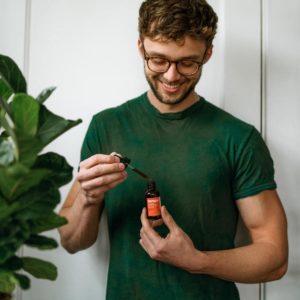 THC vs. CBD: More About Their Differences?
THC vs. CBD: More About Their Differences?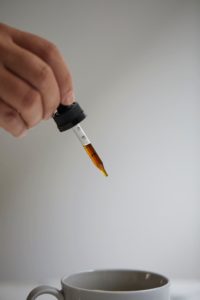 How Much Should You Take?
How Much Should You Take?